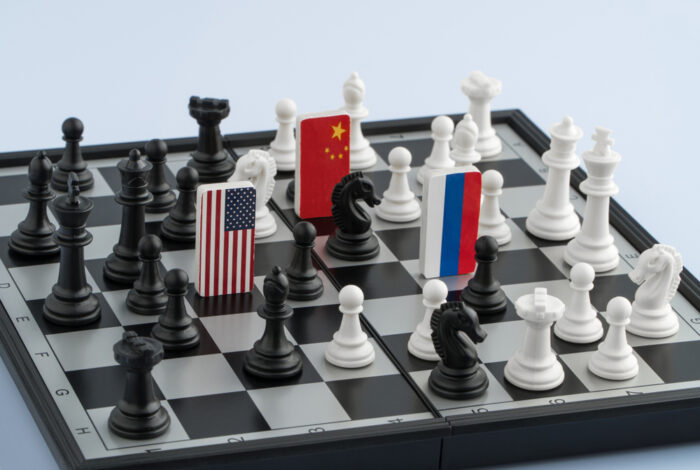The Progressive Post
From a symbolic to an effective foreign policy – the EU in Belarus
The EU’s institutional, economic and political channels to exert influence on Belarus are limited. All the contrary to Russia’s multifaceted and well-institutionalised strategy vis-à-it’s small western neighbour. However, a realistic acknowledgement of the EU’s capabilities is no excuse for self-complacency and determinism. The quest of the Belarussian people for democracy constitutes a movement of fellow Europeans fighting for European values. Democrats and progressives across the EU cannot forget that the struggle against nepotism continues in Belarus and hence, EU institutions and Member State have a moral duty to strive for a more effective policy in Belarus. The EU can do better if it assembles the necessary political willingness to do so.
In the short run and, in light of the relentless repression of peaceful demonstrators and activists, it is imperative that the EU offers comprehensive financial assistance to the thousands of people facing extraordinary personal and economic hardship in the fight for a democratic Belarus. The European Endowment for Democracy (EED) is an official EU body that offers economic and technical support to “newly created, non-registered organisations, informal platforms and individuals”. While the EED is the most fitting institutional choice to channel EU solidarity toward the Belarusian people, the body has remained inexplicably silent in recent months. EU member states should dramatically increase the EDD’s funding beyond the current 7-million budget and activate it immediately in order to alleviate the enormous pressure Belarus’ pro-democracy activists are facing.
The Russian president Vladimir Putin views his Belarussian counterpart Alexander Lukashenko’s plans for a constitutional reform as a unique opportunity to replace Belarus’ presidential system with a more fragmented parliamentary republic that would be closely aligned with Russia’s political and economic interests. The planned reform aims to weaken the presidential powers by dispersing them to other more amenable representatives of Belarus’ elites. In so doing, Putin’s regime sets out to consolidate its veto powers over domestic decision-making in Belarus and to facilitate the takeover of key economic assets by Russia’s oligarchy in the near future. In light of Russia’s unilateral strategy, the EU needs to insist that the OSCE should be the primary forum for mediation. Needless to say, the OSCE’s unresolved leadership crisis enormously undermines its efforts to act as meaningful mediating actor in Belarus. The OSCE can, however, name a Special Representative to Belarus as temporary measure, pending further elucidation of the organisation’s role. Meanwhile, through a policy of selective engagement with Russia, the EU should make the inclusion of the OSCE in mediation efforts in Belarus one of its central demands.
The outcome of the Belarusian stalemate remains unclear, but two predictions may be in order: firstly, as Lukashenko’s is clinging to power, the pro-democracy struggle in Belarus is bound to turn into a long-term battle. Secondly, attempts to advance the pro-democracy movement from the outside have not yielded any significant results in the years past and thus, any meaningful change will largely depend on the capacity, self-reliance, and mobilisation of the Belarusian people. These two apperceptions should prompt the EU to articulate a long-term strategy predicated on a series of steps.
First of all, the EU must overhaul the Eastern Partnership in order to ensure that the bloc’s financial assistance is driven away from the regime and re-directed to foster the institutionalisation of Belarus’ civil society. Over the last months, we have witnessed the spontaneous proliferation of innovative and highly successful ways of social self-organisation in the form of crowd-funding platforms, advocacy campaigns and inventive protest strategies. The EU needs to repurpose the Eastern Partnership to go beyond mere economic assistance. Civil Society in Belarus has been weak and greatly atomised up until today. The institutionalisation of civil society should be bolstered through the launching of consistent and long-term capacity-building programmes for independent media outlets, NGOs, think tanks, human rights organisations and other representatives of the country’s civil society.
Second, The EU remains the world’s largest trading bloc and its economic might represents the cornerstone of the EU’s normative power abroad. The possibility of benefitting from access to EU markets will likely outshine any proposal for deeper economic integration Russia could propose to Belarus’ economic elites. Hence, the EU should offer a prospect of enhanced economic integration to reinvigorate Belarus’ precarious economy, conditioned on the opening of a real democratising process. It is crucial to detach this incentive from geopolitical considerations and assure that integration into the European market would result in better living standards for the Belarusian people.
The Belarusian people have already accomplished something extraordinary: after twenty-six years of nearly uncontested rule, Aleksandr Lukashenko is facing the awakening of a united people. His days in power are numbered as the brutal assault against peaceful demonstrators has made him lose all remaining legitimacy among his fellow countrymen. Coercion is all he has left to secure in power. And yet, violence will only assure his eventual downfall. Sufficient mechanisms exist for the EU to transform its largely symbolic policy into an effective commitment with the Belarusian people. Persevering in our efforts to foster democracy is a moral duty.
*This article is based on the publication The Belarusian Quest for Democracy: A Moral Commitment for All Europeans
Related articles:
- Belarus’ painful path to transition, by Katia Glod
- The deeper causes of Belarusian popular mobilisation, by Ekaterina Pierson-Lyzhina
- Belarus at the crossroad: what role for Europe?, by Liutauras Gudžinskas
- Against the EU’s passivity towards Belarus, by Ireneusz Bil
- From a symbolic to an effective foreign policy – the EU in Belarus, by Fernando Rejon Sanchez
- Belarus protests: the role of women and young people, by Ana Pirtskhalava
- “Women are leading the fight, that is indeed incredibly inspirational!”, an interview with Alexander Kwasniewski




